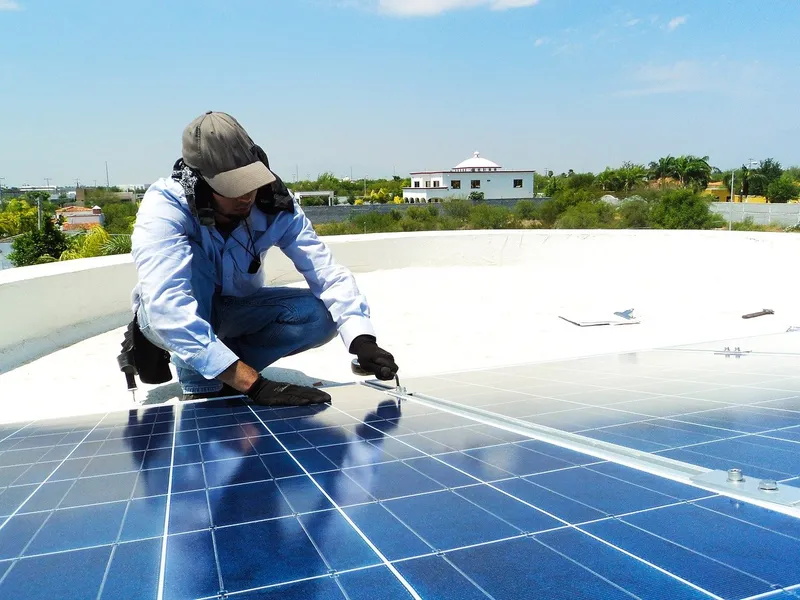World Environment Day: These 5 startups are creating sustainable alternatives for fossil fuel
On World Environment Day, SocialStory highlights some of India’s renewable energy startups that are providing alternatives to conventional energy sources.
According to Swiss organisation IQAir, India accounts for 22 out of 30 most polluted cities in the world, including the Delhi-NCR.
While most of this pollution is due to the stubble burning practices in and around the northern states of Delhi, a majority is also because of the unchecked use of fossil fuels such as petrol, diesel, and coal, among others.
To effectively reduce the use of such non-renewable energies, many companies are coming up with renewable alternatives, including the Indian government.
The central government has emphasised installing 175GW renewable energy capacity by 2022 — which includes 100 GW from solar, 60 GW from wind, 10 GW from bio-power and 5 GW from small hydro-power.
In fact, the adoption of electric vehicles is seeing citizens reduce the use of conventional fuel sources like petrol and diesel, even certain appliances.
On World Environment Day, SocialStory highlights some of India’s renewable energy startups that are providing alternatives to conventional energy sources.
ReNew Power

ReNew Power Founder Sumant Sinha
Founded in 2011 by Sumant Sinha, Gurugram-based ReNew Power — a renewable energy startup — develops, builds, and operates wind and solar energy projects for both commercial and industrial customers.
The startup has about 100 projects running across eight Indian states. It has a total asset base of about 9.86 GW, of which about 5.6 GW is already commissioned. In 2016, the startup also became the first Indian renewable energy company to achieve 1 GW capacity.
E-Hands Energy

Representational image (Image source: Pixabay)
Since its foundation in 2009, E-Hands Energy is providing a range of solar, micro-wind turbines, hybrid solar-wind renewable energy, and rural solar lighting solutions.
It partners with re-manufacturers, NGOs, like-minded corporate entities, and financial and educational institutions to execute the same.
The company has made about 500+ installations, covering border areas, railway crossings, NGOs, rural homes, schools, and IT and micro-finance companies. Several of its initiatives have helped reduce over 2500 tons of carbon emissions into the atmosphere.
Gegadyne Energy

Jubin Varghese(R) and Ameya Gadiwan (L)
Mumbai-based Gegadyne Energy was founded by Jubin Varghese and Ameya Gadiwan in 2015 to develop a Proprietary Battery Technology. What’s unique about the battery is that it can charge from 0 to 100 percent in under 15 minutes, while complying with the highest safety standards.
This is attributed to its unique proprietary nano-material composites and advanced battery architecture to enable quick charging batteries with high energy density similar to lithium-ion batteries.
It also produces battery-grade chemicals, among others, to use in its battery tech and the broader economy. It also plans to take the batteries into the electric vehicles (EV) industry and change the economics of the sector.
ZunRoof

Zunroof founder Pranesh Chaudhary
Founded in 2016, ZunRoof aims to make clean energy affordable and accessible to everyone. The startup provides solar energy and IoT smart energy solutions for making next-generation energy technology accessible to people.
It also handles energy harnessing, storage, maintenance, and consumption of electricity. The Gurugram-based startup is working every day to grow the share of residential solar power all across India to make solar power a household utility for everyone.
Carbon Masters

Representational image: Shutterstock
Carbon Masters was founded by Som Narayan in Bengaluru in 2012, with offices in the UK. The carbon management company aims to address the climate emergency by providing carbon management advisory services and developing clean energy and low carbon solutions, which can replace fossil fuels.
It has pioneered the development of Carbonlites — India’s first branded bottled bio-CNG — which is both cost-efficient and reduces carbon emissions. It is made by converting food and agricultural wastes into clean renewable energy, which can replace LPG for commercial cooking in eateries.
Edited by Suman Singh



_(1)_(1)1552900741642.jpeg?fm=png&auto=format&h=100&w=100&crop=entropy&fit=crop)




